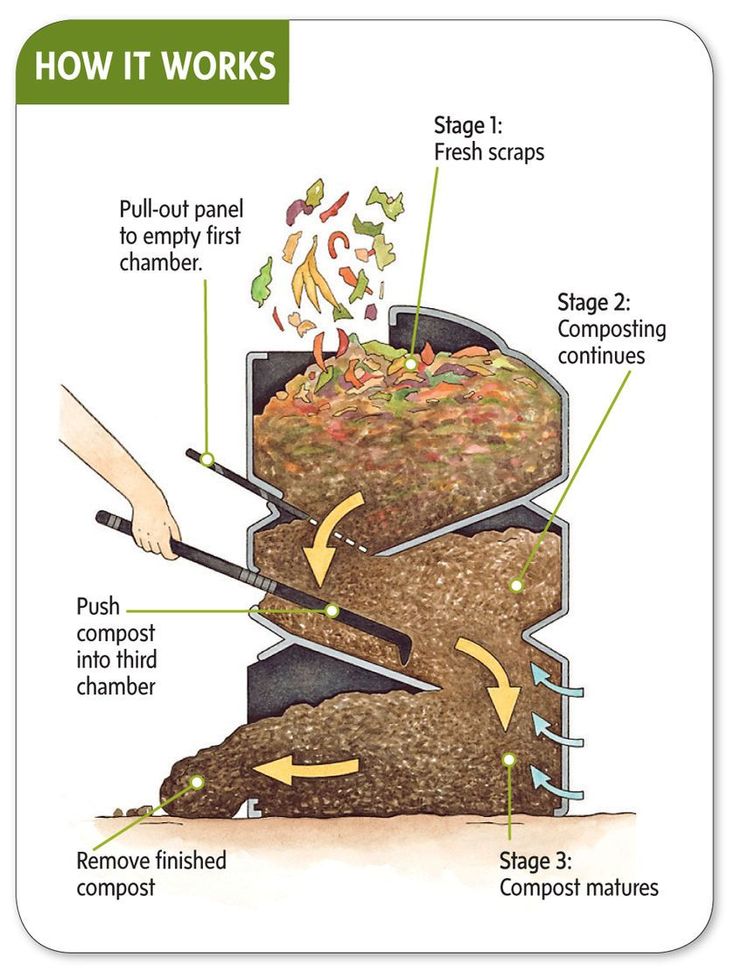“How kitchen waste moves through stages of transformation to become garden-ready compost.”
🔹 How It Works
Stage 1: Fresh Scraps
- You start by adding food waste such as vegetable peels, fruit skins, coffee grounds, and garden trimmings into the first chamber.
- At this stage, the scraps are still recognizable and just beginning to decompose.
- Microorganisms, heat, and moisture begin the breakdown process.
Stage 2: Composting Continues
- The material moves downward into the second chamber.
- Here, decomposition speeds up. The waste becomes darker and starts losing its original form.
- Heat and microbial activity remain high, breaking down tough organic matter like stems and peels.
- This stage produces a rich, earthy smell, signaling that compost is well on its way.
Stage 3: Compost Matures
- The waste finally settles into the third chamber, where it matures.
- At this stage, the compost is dark brown, crumbly, and rich in nutrients.
- Aeration holes ensure oxygen circulation, helping the final breakdown.
- Finished compost is collected from the bottom pull-out panel.
🔹 Key Features of This System
- Pull-out panel: Makes it easy to remove compost at different stages.
- Chambered design: Separates fresh scraps from finished compost, reducing smell and pests.
- Continuous cycle: As you add fresh scraps at the top, mature compost is ready at the bottom.
- Efficient aeration: Proper airflow keeps the pile “breathing” and prevents rot.
🔹 Why It Matters
- Reduces landfill waste: Food scraps are recycled instead of dumped.
- Provides free fertilizer: Compost improves soil structure, retains water, and feeds plants naturally.
- Eco-friendly: Cuts methane emissions from organic waste in landfills.
- Simple for households: This design is compact, tidy, and easy to manage even in urban homes.
👉 In short: This system works like a natural recycling factory inside a bin. You put in kitchen waste, and after a journey through three chambers, you get back rich, garden-ready compost. 🌱♻️
